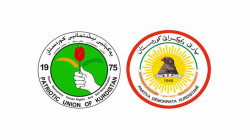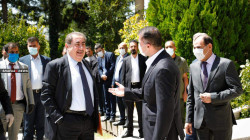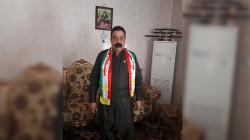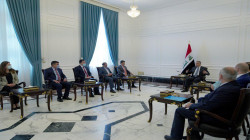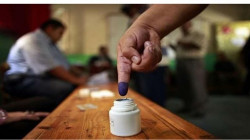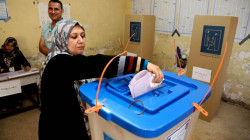PUK plans meeting to address KDP's election withdrawal
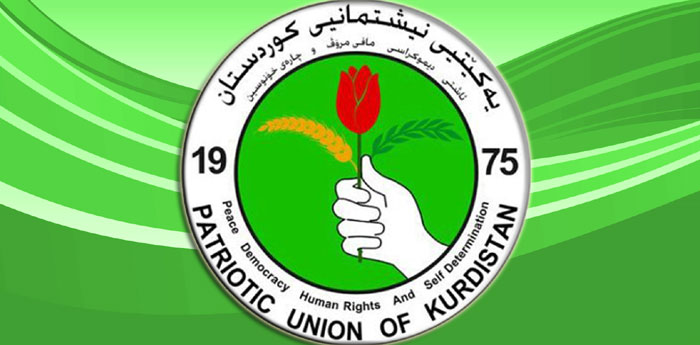
2024-03-18T14:21:40+00:00
Shafaq News/ The Patriotic Union of Kurdistan (PUK) said on Monday that the Party will officialy commented on the Kurdistan Democratic Party's (KDP) decision to withdraw from the upcoming Kurdish parliament elections after holding a meeting to its members.
Saadi Ahmed Pira, a leader in the PUK told Shafaq News Agency that "the Political Bureau will convene a meeting to discuss the Kurdistan Democratic Party's decision to withdraw, and will deliberate on the decision following the meeting."
On Monday, KDP decided to boycott the upcoming parliamentary elections in the Kurdistan Region, warning of potential withdrawal from Iraq's political process if the State Administration Coalition (SAC) fails to adhere to agreed-upon terms.
SAC coalition was established following Muqtada Al-Sadr’s withdrawal from politics, it comprises mainly of the KDP led by Masoud Barzani, and the PUK, led by Bafel Talbani, and the Sunni Sovereignty led by Khamis al-Khanjar and the Iran-backed Shiite coalition forces (Coordination Framework).
The KDP's Political Bureau released a statement, urging the SAC parties to “fulfill their national responsibilities by upholding the constitution and honoring all provisions of the political and administrative agreement governing the current government led by Mohammed Shia al-Sudani.”
In addition, the statement denounced the decisions made by the Iraqi Federal Supreme Court regarding the Kurdistan Region elections.
Last February, Iraq’s Supreme Court declared that a specific article concerning the minority quota in KRG’s provincial election law was deemed "unconstitutional." This article, part of a law initially adopted in 1992 and revised in 2013, mandates 11 quota seats in the Regional parliament for ethnic and religious minorities. In response, the Turkmen (a minority) withdrew from the elections.
Furthermore, the verdict stated that Iraq’s Independent High Electoral Commission will take over from KRG’s electoral commission to supervise parliamentary elections, which are anticipated to occur next June.
The decision also divided Kurdistan into four constituencies, Al-Sulaymaniya, Erbil, Duhok, and Halabja instead of the single-constituency system in previous elections.
"We believe that it is in the interest of our people and our country not to comply with an unconstitutional decision and a system imposed from outside the will of the people of Kurdistan and its constitutional institutions, and not to participate in elections conducted contrary to the law, the constitution, and under the umbrella of an imposed electoral system." KDP statement said.
The statement highlighted that the KDP remains confident in its position as the “leading party” in the Kurdistan Region. However, “the choice not to partake in the elections was made to uphold the rights of the Kurdish people and to support Iraq's democratic and federal system.”
Notably, Kurdistan’s autonomy is protected by the Iraqi constitution, ratified in 2005, ensuring the political and economic rights of approximately six million residents in the Kurdistan Region. Nonetheless, there is a significant lack of trust between the Kurdistan Region and the central government in Baghdad in recent years mainly regarding elections, oil exports, and salaries of Kurdish employees.
One of the main issues that could empower the federal government, is the political division in Kurdistan.
The political landscape of Iraqi Kurdistan is characterized by a complex interplay between two major players, KDP and PUK. Their relationship has evolved over time, marked by periods of cooperation and competition.
Both parties have a shared history of advocating for Kurdish rights in Iraq.
The KDP, led by Mustafa Barzani, and the PUK, founded by Jalal Talabani, initially collaborated against the oppressive Ba'athist regime. However, ideological differences and power dynamics led to a violent civil war in the 1990s, fracturing their unity.
Following the US invasion of Iraq in 2003, a fragile peace was established. A power-sharing agreement was forged, allocating governmental roles and maintaining a degree of stability in the Kurdistan Region. Yet, underlying tensions persisted, with the KDP often accused of dominance and the PUK feeling sidelined.
Recent years have seen a resurgence of these tensions, particularly regarding issues like oil revenue, political control, and disputed territories such as Kirkuk. The PUK's boycott of KRG meetings in 2023 underscored these ongoing challenges.
KDP predominantly governs the Region, yet the Patriotic Union of Kurdistan (PUK) wields considerable influence in both political and military realms within the Region.
